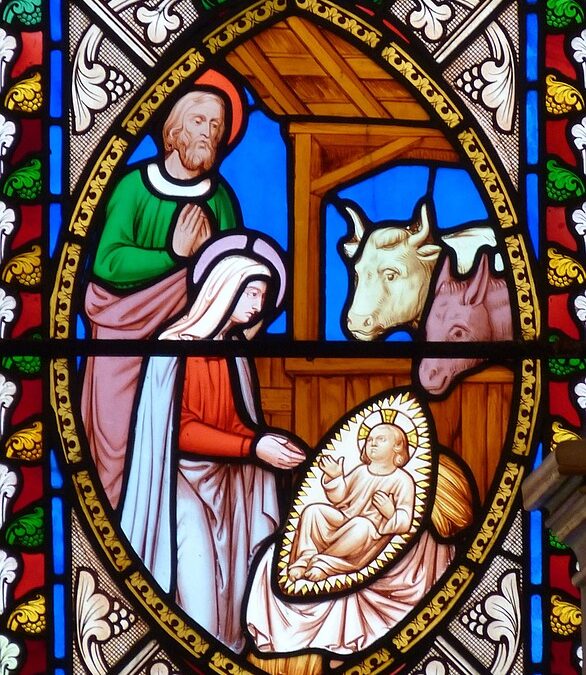
Dec 23, 2016 | Non categorizzato
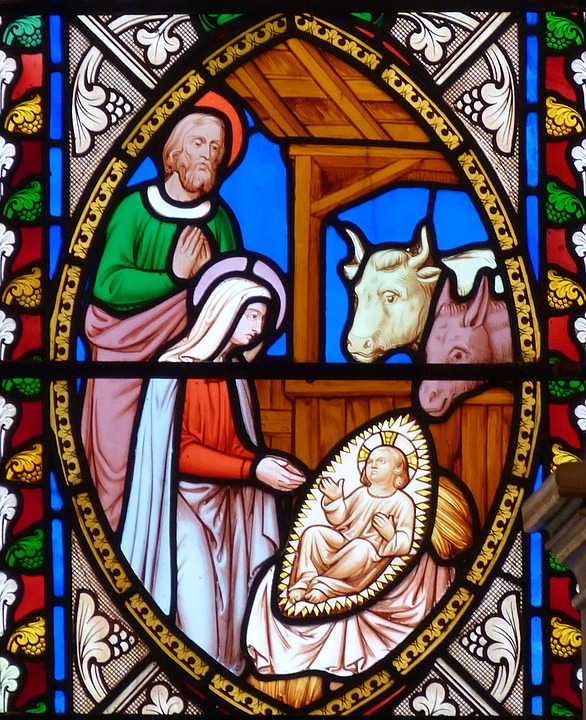 |
Christmas reminds us, along with the Scripture passage that we’ve chosen to live this month, that “He comes to save us” (Is 35:4). Save us from what? Among other things, our indifference towards those who suffer. My wish for you this Christmas is that we may all go beyond ourselves and welcome the other, all the others: those in need, those who have left their own lands because of hunger and war, those who are lonely, marginalized, imprisoned….. My wish for all of us is that after having experienced God’s love that saves us, we will reach out to save those around us. Happy Christmas everybody!
Maria Voce
|
![The simplicity of Aletta]()
Dec 21, 2016 | Non categorizzato
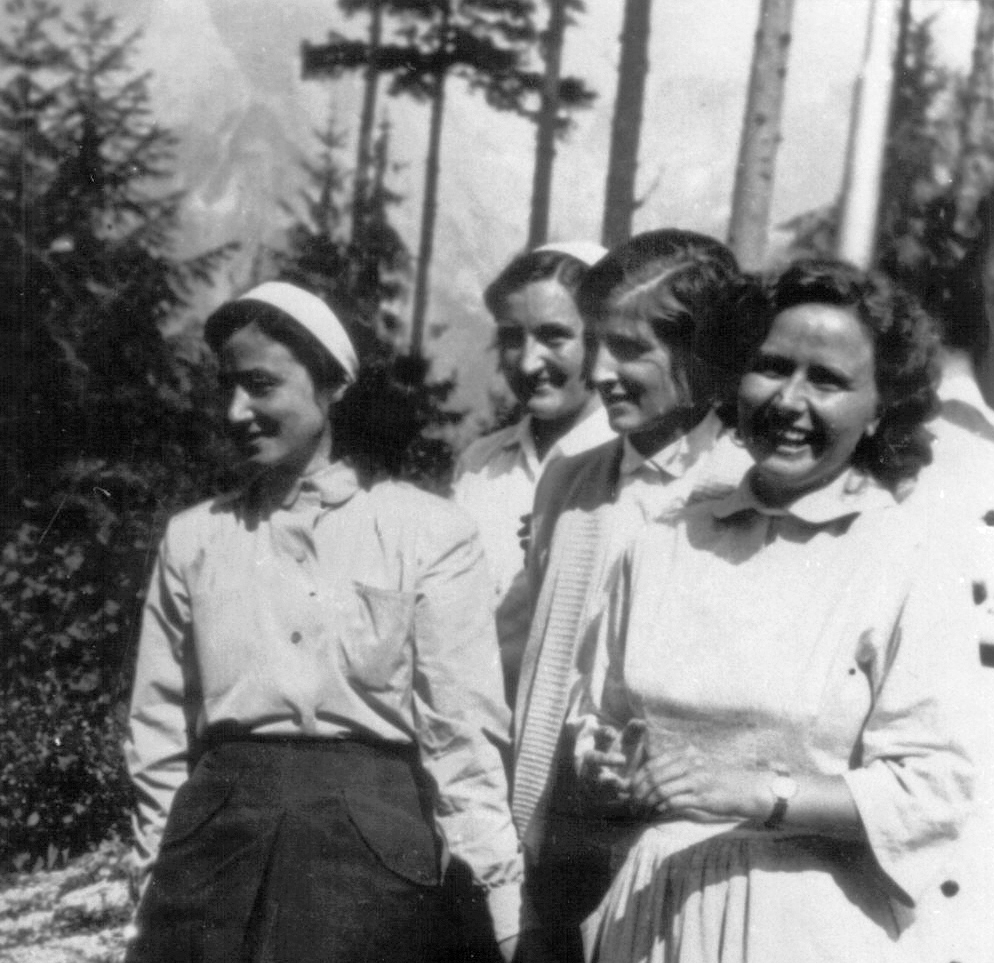 Born in Martignano (Trent) on 27 November 1924, Vittoria Salizzoni, who moved temporarily to France with her family, felt God’s call at the age of 13: an intuition which she tried momentarily to put aside. At the age of 21 she met Chiara Lubich and was attracted by the novelty of the life she lived. Her doubts dissolved immediately: the path through which she could respond to that “calling” she had felt ever since childhood, was the focolare. Aletta (“little wing,” the name that Chiara gave her to remind her of the winged flight she had to take without looking back) stood by Chiara for 20 years in the discovery and implementation of the features of the Charism the Holy Spirit was slowly revealing to them. Among these, besides the specific spirituality of unity which is its particular characterstic, were the main concrete aspects of Christian life. What specifically suited the figure of Aletta, was the concern for health and protection of the environment. Chiara herself had explained this aspect to her as: «the entire humanity of Jesus; the life of Jesus in each person. Jesus was born of a woman like us, suffered the cold and hunger, cried, and experienced human affection. He fed the hungry, multiplied the bread and fishes, and healed many sick people. But above all he was full of love for mankind, and his suffering… Suffering, death and the resurrection are also expressions of this aspect.» In the 1960s and 1970s Chiara asked her to open the focolare house in Istanbul, where Aletta would have many and profound contacts with Patriarch Athenagoras I. So on many occasions, she had the chance to accompany Chiara in her visits to the Patriarch. During her stay in those lands, Aletta discovered the beauty of the Orthodox Church and the Churches of the Orient, in which she saw the importance of translating truth in life, exalting love. The contacts she established were the precursor of a fertile dialogue that has continued up to today, with the current Ecumenical Patriarch, Bartholomew I.
Born in Martignano (Trent) on 27 November 1924, Vittoria Salizzoni, who moved temporarily to France with her family, felt God’s call at the age of 13: an intuition which she tried momentarily to put aside. At the age of 21 she met Chiara Lubich and was attracted by the novelty of the life she lived. Her doubts dissolved immediately: the path through which she could respond to that “calling” she had felt ever since childhood, was the focolare. Aletta (“little wing,” the name that Chiara gave her to remind her of the winged flight she had to take without looking back) stood by Chiara for 20 years in the discovery and implementation of the features of the Charism the Holy Spirit was slowly revealing to them. Among these, besides the specific spirituality of unity which is its particular characterstic, were the main concrete aspects of Christian life. What specifically suited the figure of Aletta, was the concern for health and protection of the environment. Chiara herself had explained this aspect to her as: «the entire humanity of Jesus; the life of Jesus in each person. Jesus was born of a woman like us, suffered the cold and hunger, cried, and experienced human affection. He fed the hungry, multiplied the bread and fishes, and healed many sick people. But above all he was full of love for mankind, and his suffering… Suffering, death and the resurrection are also expressions of this aspect.» In the 1960s and 1970s Chiara asked her to open the focolare house in Istanbul, where Aletta would have many and profound contacts with Patriarch Athenagoras I. So on many occasions, she had the chance to accompany Chiara in her visits to the Patriarch. During her stay in those lands, Aletta discovered the beauty of the Orthodox Church and the Churches of the Orient, in which she saw the importance of translating truth in life, exalting love. The contacts she established were the precursor of a fertile dialogue that has continued up to today, with the current Ecumenical Patriarch, Bartholomew I.  After the death of Athenagoras, Aletta moved to Lebanon. Those were years of civil war, which with the continuous air raids, repeated the lesson of the movement’s early years in Trent: “everything collapses, only God remains!” She shared with the local people the insecurity and risks of those long years of war, supporting, consoling, and imbuing hope. Difficulties and dangers did not hinder the spread of the charism of unity, not only in Lebanon but across the Middle East, which Aletta visited periodically. In 1990 she returned to Rome for good. «During those first years in Piazza Cappuccini – recounts Palmira, who is also from that first group of focolarine women of Trent – I would go with Aletta to the valleys to meet the first communities that were sprouting. She was like an angel, and it explains clearly why Chiara immediately called her so. And she was like the batter of an angel’s wing, for Chiara and for all of us throughout these 70 years of her life in the focolare. She didn’t talk much, but what she said put us all in the essential facts of life. What characterized her most was simplicity, an inborn serenity and enviable psycho-physical balance.» Ten days before her death, Aletta recorded a video message to the youths of the Movement, the gen, gathered for their congress: «I want to greet all the gen of the world on their 50th anniversary. May they all make progress; they are young, still strong, and can do all they wish!» Upon announcing the death of Aletta to the Movement worldwide, Maria Voce, the Focolare President wrote: «With joy and immense gratitude we are accompanying Aletta to the house of the Father. We could not have had a better model than her, who gave her life without measure.» By Anna Friso
After the death of Athenagoras, Aletta moved to Lebanon. Those were years of civil war, which with the continuous air raids, repeated the lesson of the movement’s early years in Trent: “everything collapses, only God remains!” She shared with the local people the insecurity and risks of those long years of war, supporting, consoling, and imbuing hope. Difficulties and dangers did not hinder the spread of the charism of unity, not only in Lebanon but across the Middle East, which Aletta visited periodically. In 1990 she returned to Rome for good. «During those first years in Piazza Cappuccini – recounts Palmira, who is also from that first group of focolarine women of Trent – I would go with Aletta to the valleys to meet the first communities that were sprouting. She was like an angel, and it explains clearly why Chiara immediately called her so. And she was like the batter of an angel’s wing, for Chiara and for all of us throughout these 70 years of her life in the focolare. She didn’t talk much, but what she said put us all in the essential facts of life. What characterized her most was simplicity, an inborn serenity and enviable psycho-physical balance.» Ten days before her death, Aletta recorded a video message to the youths of the Movement, the gen, gathered for their congress: «I want to greet all the gen of the world on their 50th anniversary. May they all make progress; they are young, still strong, and can do all they wish!» Upon announcing the death of Aletta to the Movement worldwide, Maria Voce, the Focolare President wrote: «With joy and immense gratitude we are accompanying Aletta to the house of the Father. We could not have had a better model than her, who gave her life without measure.» By Anna Friso
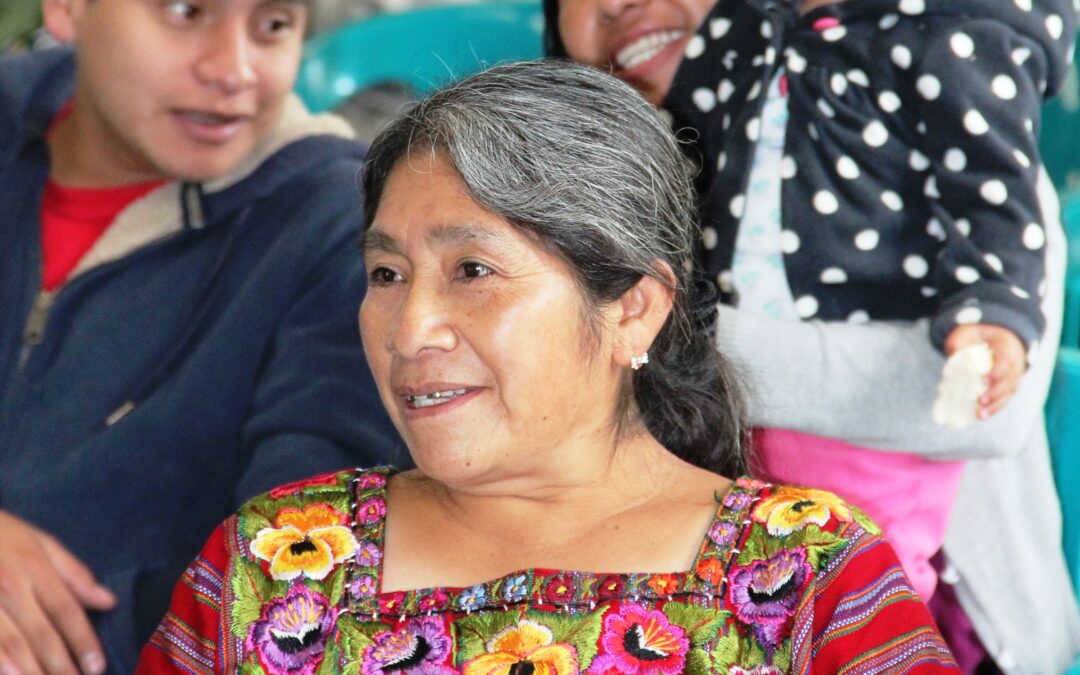
Dec 20, 2016 | Non categorizzato
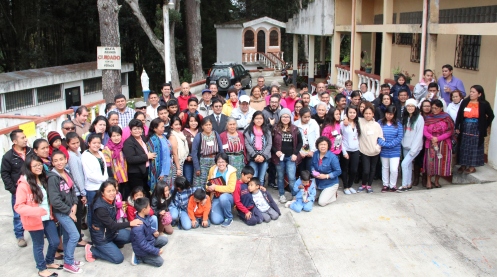 «We visited the families with the Word of Life leaflet and while talking about one thing and the other, a meeting ensued.» These were the words of Carmen, who with her husband, Mynor and their nearest of kin, initiated the holding of the Mariapolis close to their city, Chimaltenango, 54 km from Guatemala City. Based on commerce and agriculture, the city’s economy is integrated with the modern rhythms of production and consumption, but still jealously guards their ancient culture and traditions. Carmen and Mynor are the heart of the Focolare community and their big house is the local base of the Movement. With a twinge of pride they told us about the meetings they hold there. Information about the Movement was barely disseminated, so the first thing they did was to inform the parish priest, who Mynor, Carmen, and her sister, Marta went to visit. But priests in these areas are very busy, and since Mynor could not wait for long, he went to his work in Court. «The priest could not understand what novelties the Movement could bring – Carmen continued – until my sister Marta told him about the experiences of her children who are gen3». The first had allocated the money she received on her 15th birthday to the poor children of an isolated village; the other had forgiven a school mate who had tripped him and caused him to consequently break an arm. At that point the parish priest understood the effects of living the Focolare spirituality. Once they received the support of the local church, they had to cover the expenses. «When people are invited to a retreat – Mynor said – they know they will be hosted as guests». Because of this the preparation for the Mariapolis also consisted in fundraising activities, one of which was holding Bingo sessions in the parish hall, and gathering gifts for the occasion.
«We visited the families with the Word of Life leaflet and while talking about one thing and the other, a meeting ensued.» These were the words of Carmen, who with her husband, Mynor and their nearest of kin, initiated the holding of the Mariapolis close to their city, Chimaltenango, 54 km from Guatemala City. Based on commerce and agriculture, the city’s economy is integrated with the modern rhythms of production and consumption, but still jealously guards their ancient culture and traditions. Carmen and Mynor are the heart of the Focolare community and their big house is the local base of the Movement. With a twinge of pride they told us about the meetings they hold there. Information about the Movement was barely disseminated, so the first thing they did was to inform the parish priest, who Mynor, Carmen, and her sister, Marta went to visit. But priests in these areas are very busy, and since Mynor could not wait for long, he went to his work in Court. «The priest could not understand what novelties the Movement could bring – Carmen continued – until my sister Marta told him about the experiences of her children who are gen3». The first had allocated the money she received on her 15th birthday to the poor children of an isolated village; the other had forgiven a school mate who had tripped him and caused him to consequently break an arm. At that point the parish priest understood the effects of living the Focolare spirituality. Once they received the support of the local church, they had to cover the expenses. «When people are invited to a retreat – Mynor said – they know they will be hosted as guests». Because of this the preparation for the Mariapolis also consisted in fundraising activities, one of which was holding Bingo sessions in the parish hall, and gathering gifts for the occasion. 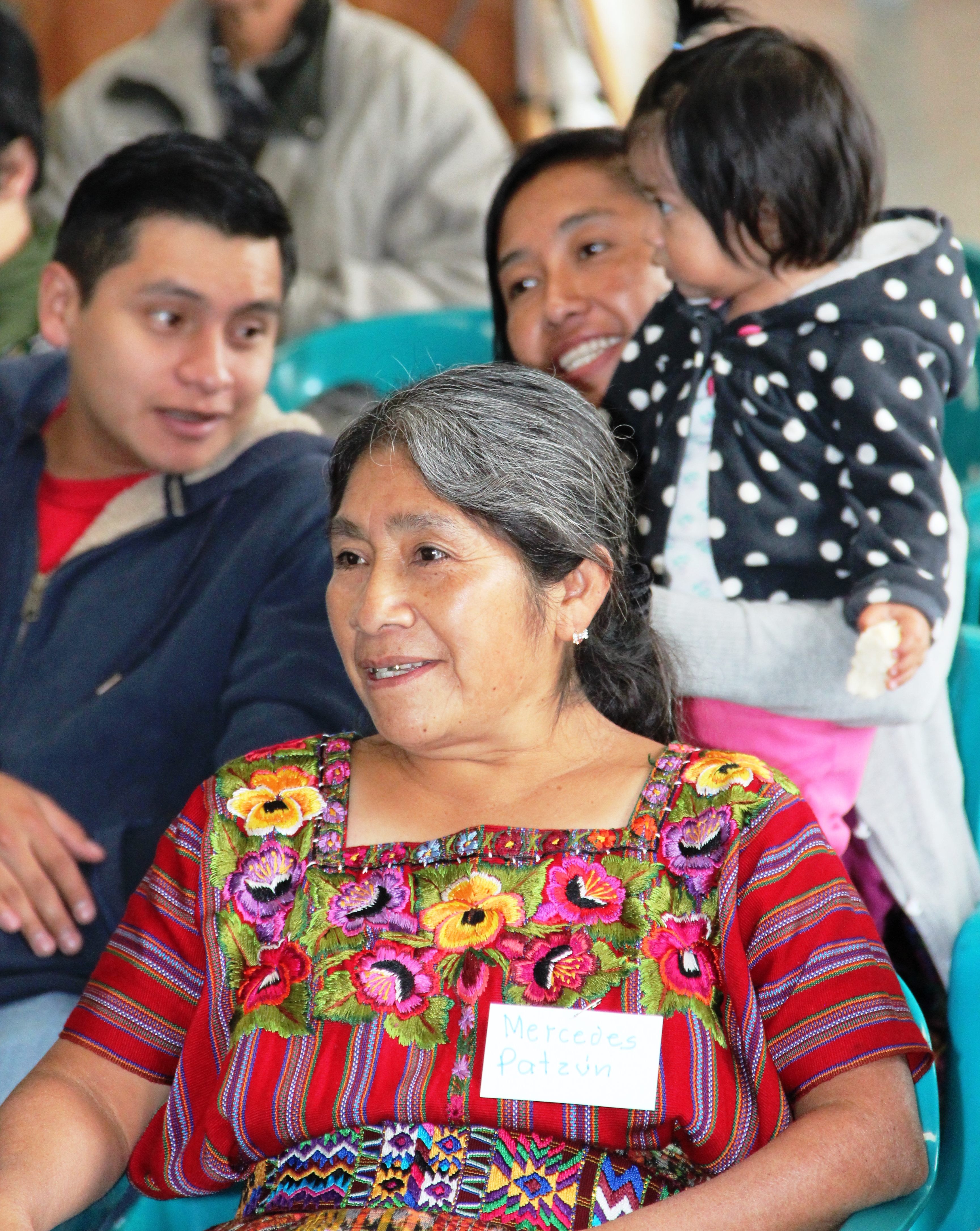 Kelly, the second of Carmen and Mynor’s four children, is studying law to follow in her father’s footsteps. «There are only a few of us in the faculty – she affirmed – but we help each other. Only two of us are gen but we always try to have Jesus in our midst and with everyone». Kelly admires the coherent life of her parents: «When they invited people to the Mariapolis, they spoke about experiences I know, and which were all true. In our home, the Word of Life is the reference for every situation. And so, when there is a problem we read it in order to put it into practice.» Respect for the elderly is one of the riches of the Kaqchikel. In their presence, a gesture of reverence is shown before speaking. Motherhood and the gift of children are considered a benediction of God and are foremost in value compared to all considerations. «For me, the Movement – again Carmen says – is a grace of God that welcomes us, adults and children, and likewise the various cultures and languages. Here, they appreciate us, with our traditions and mentality.» In the culture of the Maya there is a strong bond with nature. «We invoke it, giving thanks to the heart of the heavens and the heart of the earth, and like St. Francis, we say: all are my brothers. Also Chiara Lubich had this vision. The Holy Spirit inspired her in this sense, which is why the Focolare Movement welcomes us as we are.» Mynor concludes: «The Maya philosophy stresses harmony, balance of the material and spiritual aspects, and solidarity which is equal to fraternity, to nurture conditions of cooperation.» Beyond all the contradictions that reign in every culture, the Kaqchikel conserve many human values which, enlightened and purified by the Gospel, enrich all those who receive it. Filippo Casabianca, Guatemala City
Kelly, the second of Carmen and Mynor’s four children, is studying law to follow in her father’s footsteps. «There are only a few of us in the faculty – she affirmed – but we help each other. Only two of us are gen but we always try to have Jesus in our midst and with everyone». Kelly admires the coherent life of her parents: «When they invited people to the Mariapolis, they spoke about experiences I know, and which were all true. In our home, the Word of Life is the reference for every situation. And so, when there is a problem we read it in order to put it into practice.» Respect for the elderly is one of the riches of the Kaqchikel. In their presence, a gesture of reverence is shown before speaking. Motherhood and the gift of children are considered a benediction of God and are foremost in value compared to all considerations. «For me, the Movement – again Carmen says – is a grace of God that welcomes us, adults and children, and likewise the various cultures and languages. Here, they appreciate us, with our traditions and mentality.» In the culture of the Maya there is a strong bond with nature. «We invoke it, giving thanks to the heart of the heavens and the heart of the earth, and like St. Francis, we say: all are my brothers. Also Chiara Lubich had this vision. The Holy Spirit inspired her in this sense, which is why the Focolare Movement welcomes us as we are.» Mynor concludes: «The Maya philosophy stresses harmony, balance of the material and spiritual aspects, and solidarity which is equal to fraternity, to nurture conditions of cooperation.» Beyond all the contradictions that reign in every culture, the Kaqchikel conserve many human values which, enlightened and purified by the Gospel, enrich all those who receive it. Filippo Casabianca, Guatemala City
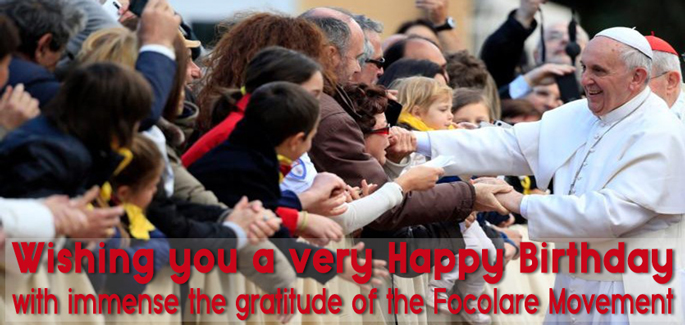
Dec 17, 2016 | Non categorizzato
 Use the social network to send your birthday greetings to Pope Francis:
Use the social network to send your birthday greetings to Pope Francis: Twitter: @pontifex Instagram: franciscus Ha*htag #Pontifex80
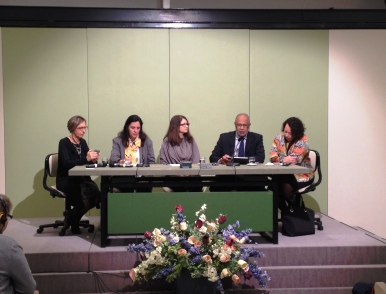
Dec 15, 2016 | Non categorizzato
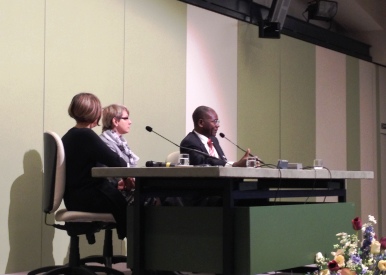 The objective of the convention was to «Review the various professions involved in the sector of justice – magistrates, lawyers, chancellors, university professors, prison staff, law enforcers – and discover the path to be pursued together, with the active participation of all the “actors” of the multifaceted relationships involved». The international congress promoted by Communion and Law (CeD) and New Humanity, was held last 26 and 27 November in Castel Gandolfo (Rome). The presence of a film director in a meeting on justice may have seemed to be quite unusual, but in his moving testimonial, Fernando Muraca succeeded in describing the experience of a prison staff in the Penal Institute for Minors of Catanzaro (Southern Italy). This was a documentary filmed entirely by the youths of the Institute, and the fruit of a commitment translated into a “cinema project” that transformed the young inmates not only into actors, but into people who have given a new meaning to their existence. Muraca is also the author and director of the film The land of Saints in which he faces the reality of the mafia’s organized crime. During the two days of intense dialogue among the various operators working in the field of justice, the discourse oftentimes stressed the concept of human dignity, and the intrinsic and inestimable value of every human being, in the conviction that also legal relationships can be lived in the spirit of fraternity and the quest for true justice.
The objective of the convention was to «Review the various professions involved in the sector of justice – magistrates, lawyers, chancellors, university professors, prison staff, law enforcers – and discover the path to be pursued together, with the active participation of all the “actors” of the multifaceted relationships involved». The international congress promoted by Communion and Law (CeD) and New Humanity, was held last 26 and 27 November in Castel Gandolfo (Rome). The presence of a film director in a meeting on justice may have seemed to be quite unusual, but in his moving testimonial, Fernando Muraca succeeded in describing the experience of a prison staff in the Penal Institute for Minors of Catanzaro (Southern Italy). This was a documentary filmed entirely by the youths of the Institute, and the fruit of a commitment translated into a “cinema project” that transformed the young inmates not only into actors, but into people who have given a new meaning to their existence. Muraca is also the author and director of the film The land of Saints in which he faces the reality of the mafia’s organized crime. During the two days of intense dialogue among the various operators working in the field of justice, the discourse oftentimes stressed the concept of human dignity, and the intrinsic and inestimable value of every human being, in the conviction that also legal relationships can be lived in the spirit of fraternity and the quest for true justice.  The rich and varied programme also deepened particularly current themes such as the protection of unaccompanied minors and political asylum applicants, relationship with jailees and protection of the victims. Dr. David Shaeed (magistrate in Indianapolis), Atty. Alba Doto (Boston), Atty. Endy Moraes (Fordham University, New York), and Dr. Luciane Barzotto Cardoso (magistrate of the Federal Court of Porto Alegre, Brazil), reviewed the current laws in various parts of the world, and elaborated the methods of pursuing the research and study paths initiated for some years now, also enriched by concrete implementations. Among the speeches was the video presentation of Maria Voce, Focolare President, the first woman lawyer of the Court of Cosenza (Italy), entitled Justice and the common good in the perspective of universal brotherhood. In a passage of her speech, Maria Voce explained: «Today, in the light of this “piecemeal World War III,” the tragic destructions, wiping out of every right and respect for peoples living in war territories, and closure of the borders to migrants, fraternity is the only answer, and the commitment we are called to give is to build it even with small actions, infinitesimal drops that may, however, enlighten the night.». The working sessions according to professional sectors evidenced the need to facilitate a confrontation within the various professions without losing sight of the entirety, to develop a dialogue among the operators and share know-how and experiences of the various activities developed in the field of Law. A significant note was the presence of the youth and the deep involvement of students. One of the most heartfelt testimonies was that of Roberto (former convict), and Alfonso, who has been working for some years in the Rebibbia Jail (Rome) to give a concrete hand to the families of the prisoners. Roberto did not hide his emotions in presenting his experience before such a qualified public, and ended by requesting the civil community to facilitate and promote the difficult employment and social reinsertion of ex-convicts. The next event will be for the youth in the Summer School 2017. Patrizia Mazzola
The rich and varied programme also deepened particularly current themes such as the protection of unaccompanied minors and political asylum applicants, relationship with jailees and protection of the victims. Dr. David Shaeed (magistrate in Indianapolis), Atty. Alba Doto (Boston), Atty. Endy Moraes (Fordham University, New York), and Dr. Luciane Barzotto Cardoso (magistrate of the Federal Court of Porto Alegre, Brazil), reviewed the current laws in various parts of the world, and elaborated the methods of pursuing the research and study paths initiated for some years now, also enriched by concrete implementations. Among the speeches was the video presentation of Maria Voce, Focolare President, the first woman lawyer of the Court of Cosenza (Italy), entitled Justice and the common good in the perspective of universal brotherhood. In a passage of her speech, Maria Voce explained: «Today, in the light of this “piecemeal World War III,” the tragic destructions, wiping out of every right and respect for peoples living in war territories, and closure of the borders to migrants, fraternity is the only answer, and the commitment we are called to give is to build it even with small actions, infinitesimal drops that may, however, enlighten the night.». The working sessions according to professional sectors evidenced the need to facilitate a confrontation within the various professions without losing sight of the entirety, to develop a dialogue among the operators and share know-how and experiences of the various activities developed in the field of Law. A significant note was the presence of the youth and the deep involvement of students. One of the most heartfelt testimonies was that of Roberto (former convict), and Alfonso, who has been working for some years in the Rebibbia Jail (Rome) to give a concrete hand to the families of the prisoners. Roberto did not hide his emotions in presenting his experience before such a qualified public, and ended by requesting the civil community to facilitate and promote the difficult employment and social reinsertion of ex-convicts. The next event will be for the youth in the Summer School 2017. Patrizia Mazzola
Dec 13, 2016 | Non categorizzato
Upon receiving the news of the death of Bishop Javier Echevarría, prelate of the Opus Dei, yesterday 12 December, the Focolare Movement conveys its heartfelt condolences. Most grateful for his life spent at the service of the Church, Bishop Echevarría, the second successor of St. Josemaría Escribá de Balaguer, founder of the Opus Dei, the Focolare Movement is particularly united in prayer and friendship with the Opus Dei family worldwide.







 Kelly, the second of Carmen and Mynor’s four children, is studying law to follow in her father’s footsteps. «There are only a few of us in the faculty – she affirmed – but we help each other. Only two of us are gen but we always try to have Jesus in our midst and with everyone». Kelly admires the coherent life of her parents: «When they invited people to the Mariapolis, they spoke about experiences I know, and which were all true. In our home, the Word of Life is the reference for every situation. And so, when there is a problem we read it in order to put it into practice.» Respect for the elderly is one of the riches of the Kaqchikel. In their presence, a gesture of reverence is shown before speaking. Motherhood and the gift of children are considered a benediction of God and are foremost in value compared to all considerations. «For me, the Movement – again Carmen says – is a grace of God that welcomes us, adults and children, and likewise the various cultures and languages. Here, they appreciate us, with our traditions and mentality.» In the culture of the Maya there is a strong bond with nature. «We invoke it, giving thanks to the heart of the heavens and the heart of the earth, and like St. Francis, we say: all are my brothers. Also
Kelly, the second of Carmen and Mynor’s four children, is studying law to follow in her father’s footsteps. «There are only a few of us in the faculty – she affirmed – but we help each other. Only two of us are gen but we always try to have Jesus in our midst and with everyone». Kelly admires the coherent life of her parents: «When they invited people to the Mariapolis, they spoke about experiences I know, and which were all true. In our home, the Word of Life is the reference for every situation. And so, when there is a problem we read it in order to put it into practice.» Respect for the elderly is one of the riches of the Kaqchikel. In their presence, a gesture of reverence is shown before speaking. Motherhood and the gift of children are considered a benediction of God and are foremost in value compared to all considerations. «For me, the Movement – again Carmen says – is a grace of God that welcomes us, adults and children, and likewise the various cultures and languages. Here, they appreciate us, with our traditions and mentality.» In the culture of the Maya there is a strong bond with nature. «We invoke it, giving thanks to the heart of the heavens and the heart of the earth, and like St. Francis, we say: all are my brothers. Also 

